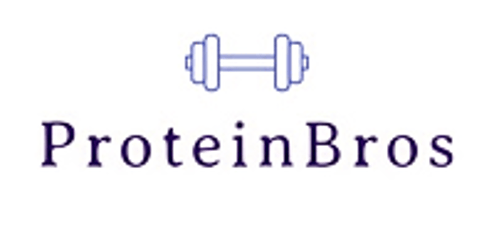
What Are the Best Supplements for Weight Loss? Science-Backed Options Revealed
Weight loss supplements can be a tempting solution for those looking to shed extra pounds. With countless options available, it's important to understand which supplements may actually aid in weight loss efforts. Learn more here!
1/23/20256 min read


Weight loss supplements can be a tempting solution for those looking to shed extra pounds. With countless options available, it's important to understand which supplements may actually aid in weight loss efforts.
The most effective weight loss supplements include green tea extract, caffeine, and glucomannan. These ingredients have shown promise in boosting metabolism, increasing fat burning, and promoting feelings of fullness. Other potentially beneficial supplements include conjugated linoleic acid (CLA) and garcinia cambogia.
While supplements can support weight loss goals, they are not magic pills. A balanced diet and regular exercise remain the foundation of any successful weight loss plan. Consulting a healthcare professional before starting any new supplement regimen is advisable to ensure safety and effectiveness.
Understanding Weight Loss
Weight loss occurs when the body burns more calories than it consumes. This process involves complex interactions between diet, physical activity, and metabolism.
Role of Diet and Exercise
A balanced diet and regular exercise are crucial for effective weight loss. Reducing calorie intake creates an energy deficit, prompting the body to use stored fat for fuel. Consuming nutrient-dense foods helps maintain muscle mass and overall health during weight loss.
Exercise increases calorie expenditure and boosts metabolism. Cardiovascular activities like running or cycling burn calories directly. Strength training builds muscle, which increases resting metabolic rate. Combining diet and exercise leads to more sustainable weight loss results than either approach alone.
Impact of Metabolism on Weight Loss
Metabolism refers to the body's process of converting food into energy. Basal metabolic rate (BMR) accounts for 60-75% of daily calorie burn. Factors affecting BMR include:
Age
Gender
Body composition
Genetics
A higher BMR can facilitate weight loss by burning more calories at rest. However, metabolic rate often slows during prolonged calorie restriction. This adaptation can make continued weight loss challenging.
Certain strategies can help boost metabolism:
Regular strength training
Eating protein-rich foods
Getting adequate sleep
Staying hydrated
Understanding individual metabolic factors allows for more targeted and effective weight loss approaches.
Types of Weight Loss Supplements
Weight loss supplements come in various forms, targeting different aspects of the body's metabolism and fat storage processes. The most common categories include appetite suppressants, fat blockers, and metabolism boosters.
Appetite Suppressants
Appetite suppressants aim to reduce food cravings and overall calorie intake. These supplements often contain ingredients like glucomannan, a dietary fiber that expands in the stomach to promote fullness. Other common components include hoodia gordonii and 5-HTP.
Caffeine is another popular appetite suppressant found in many weight loss products. It can help curb hunger and increase energy levels. Some prescription appetite suppressants, such as phentermine, are available for short-term use under medical supervision.
Natural appetite suppressants like green tea extract and garcinia cambogia have gained popularity in recent years. These ingredients may help control hunger and reduce snacking between meals.
Fat Blockers
Fat blockers work by interfering with the body's ability to absorb dietary fat. Orlistat, available both as a prescription medication and over-the-counter supplement, is one of the most well-known fat blockers.
These supplements typically contain ingredients that bind to fat molecules in the digestive tract. This process prevents the fat from being absorbed by the body, instead allowing it to pass through the system.
Chitosan, derived from shellfish, is another common fat blocker ingredient. It's believed to bind to fat in the digestive system, though research on its effectiveness is mixed.
Metabolism Boosters
Metabolism boosters aim to increase the body's calorie-burning rate. These supplements often contain stimulants like caffeine, green tea extract, and capsaicin from chili peppers.
Thermogenic ingredients like green coffee bean extract and forskolin are popular in this category. They're believed to increase body heat production, potentially leading to more calories burned.
Some metabolism boosters include B-vitamins and chromium, which play roles in energy metabolism. L-carnitine is another common ingredient, thought to help the body use fat for energy more efficiently.
Protein powders and amino acid supplements can also boost metabolism by supporting muscle mass and increasing the thermic effect of food.
Popular Supplements for Weight Loss
Several supplements have gained popularity for their potential to support weight loss efforts. These products claim to boost metabolism, reduce appetite, or inhibit fat absorption.
Green Tea Extract
Green tea extract contains compounds called catechins, particularly epigallocatechin gallate (EGCG). This antioxidant may increase metabolism and fat burning. Some studies suggest it can enhance weight loss when combined with diet and exercise.
Green tea extract is available in capsules or as a liquid. The recommended dosage varies by product. Users should follow label instructions carefully.
Potential side effects include caffeine-related jitters, insomnia, or digestive issues. People sensitive to caffeine should exercise caution when using green tea supplements.
Conjugated Linoleic Acid (CLA)
CLA is a type of fatty acid found naturally in meat and dairy products. It's marketed as a supplement to reduce body fat and increase lean muscle mass.
Some research indicates CLA may help with modest fat loss and improved body composition. However, results are mixed, and more studies are needed to confirm its effectiveness.
CLA supplements typically come in softgel form. Dosages range from 3 to 6 grams per day. Side effects can include digestive discomfort and fatigue.
Garcinia Cambogia
Garcinia cambogia is a tropical fruit extract containing hydroxycitric acid (HCA). Proponents claim it blocks fat production and suppresses appetite.
Studies on garcinia cambogia show conflicting results. Some report small weight loss benefits, while others find no significant effects.
The supplement is usually taken in capsule form. Recommended doses vary, but often range from 500 to 1500 mg daily. Garcinia cambogia is generally considered safe, but may cause headaches or digestive issues in some people.
Evaluating Supplement Efficacy
Assessing the effectiveness of weight loss supplements requires a multifaceted approach. Scientific studies and real-world experiences both play crucial roles in determining which products may offer genuine benefits.
Scientific Research
Rigorous clinical trials provide the most reliable evidence for supplement efficacy. These studies typically compare a supplement to a placebo in controlled settings. Researchers measure factors like weight loss, body composition changes, and metabolic markers.
Well-designed studies use large sample sizes and long durations to ensure reliable results. Double-blind, randomized controlled trials are considered the gold standard. They minimize bias and placebo effects.
Key aspects of supplement research include:
Dosage and formulation testing
Safety assessments
Identification of potential side effects
Mechanism of action investigations
Reputable journals publish peer-reviewed findings, allowing for scientific scrutiny. Meta-analyses combining multiple studies offer broader insights into supplement effectiveness.
User Testimonials
Real-world experiences complement scientific data. User reviews and testimonials provide insights into how supplements perform outside laboratory conditions.
Positive aspects of user feedback:
Diverse population representation
Long-term usage reports
Detailed accounts of effects and side effects
Drawbacks of relying solely on testimonials:
Potential for placebo effects
Lack of controlled variables
Possible bias from marketing or personal expectations
Reliable sources for user experiences include:
Verified purchase reviews on reputable websites
Forums moderated by health professionals
Consumer surveys conducted by independent organizations
Combining user reports with scientific evidence offers a comprehensive view of supplement efficacy. This approach helps individuals make informed decisions about weight loss supplements.
Safety Considerations and Side Effects
Weight loss supplements can pose health risks if not used properly. It's crucial to consult a healthcare professional before starting any new supplement regimen.
Common side effects may include digestive issues, headaches, and sleep disturbances. Some supplements interact with medications or have contraindications for certain health conditions.
Natural doesn't always mean safe. Herbal supplements can cause allergic reactions or liver damage in some individuals. Proper dosing is essential to avoid adverse effects.
Stimulant-based supplements may increase heart rate and blood pressure. People with cardiovascular issues should exercise caution when considering these products.
Long-term use of certain supplements can lead to nutrient imbalances or dependency. Cycling on and off supplements periodically may help mitigate these risks.
Pregnant or nursing women should generally avoid weight loss supplements. Many ingredients have not been thoroughly studied for safety during pregnancy or lactation.
Quality control varies among supplement manufacturers. Choose products from reputable companies that undergo third-party testing for purity and potency.
Be wary of supplements promising rapid or extreme weight loss. These claims often indicate potentially dangerous or ineffective ingredients.
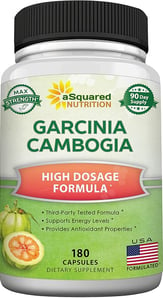

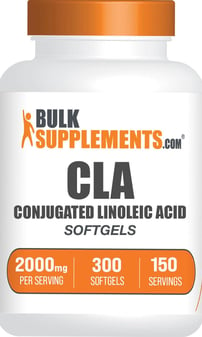

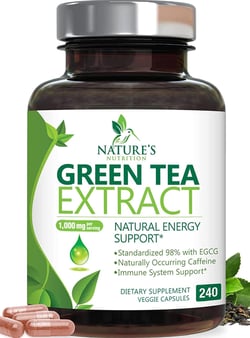

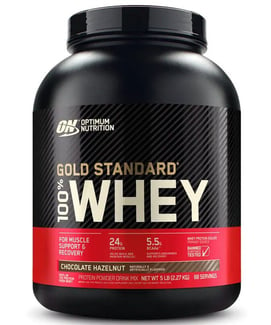

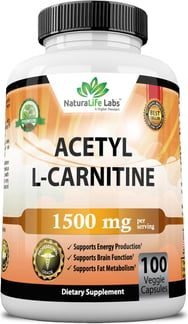

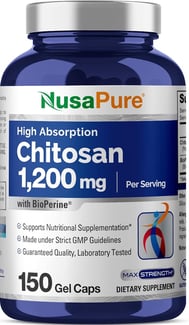

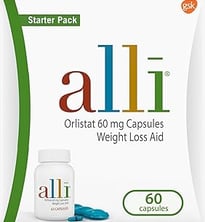

Additional info
Social media coming soon!
Contact us
Newsletter coming soon!
© 2024. All rights reserved.
